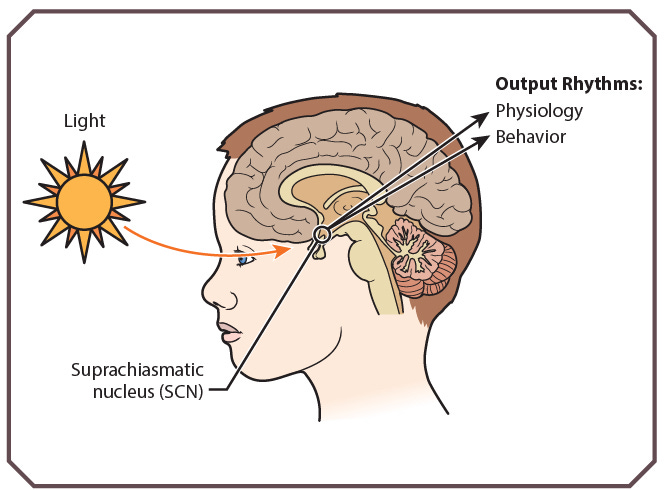Zeitgebers And The Sleep-Wake Cycle
Written by Ayebamiebi Yousuo
A Zeitgeber is any external or environmental cue that entrains or synchronizes an organism's biological rhythms.
In simple words, Zeitgebers are exogenous (external) cues that influence the timing of our internal clock. The word zeitgebers which is German for 'timer-givers' or 'time-cues' simply entails their role in signaling the body the time of the day it is, and if altered, they can significantly affect our Circadian Rhythms and our sense of time.
Examples of Zeitgebers
The examples of Zeitgebers can be classified into two broad categories:
Photic, i.e. Light
Non-Photic: all other Zeitgebers that are not light. These include Temperature, Social Interaction, Food, and Exercise.
Let's take a look at the effect of some of these Zeitgebers on our Sleep-Wake Cycle,
Effect of Light
Light is the Zeitgeber with the most effect on our Circadian Rhythm of Sleep. It is well known that the body's melatonin levels increase at night when the day is dark, signaling the body that it is time to sleep. In the presence of Artificial Light at night, maybe through Television, Screen, or Bulb light, this process can be altered causing no increase in melatonin thereby making it hard for an individual to fall asleep and altering one's sleep-wake cycle.
Effect of Temperature
Research has shown that a cooler body temperature signals the body to sleep and a high temperature as one seen during the day decreases melatonin levels setting the body into activity and keeping an individual in a wakeful state.
Effect of Food
The timing of our meals plays a crucial role in setting the body's sleep-wake cycle. With the proper timing of meals, there is decreased metabolism during sleep hours which makes it easier for an individual to fall asleep, but in the advent of eating into the night, this rhythm can be altered by the increased metabolism that follows a meal.
Conclusion
From the study of the role of Zeitgebers in the Sleep-wake Cycle and other Circadian Rhythms it has been seen that though we may not like routines, our bodies function best with one. As much as our minds need routines to gain clarity so also do our bodies need routines to work functionally.
References
https://www.sleep.com/sleep-health/zeitgebers-how-they-work
Written by Ayebamiebi Yousuo from MEDILOQUY


